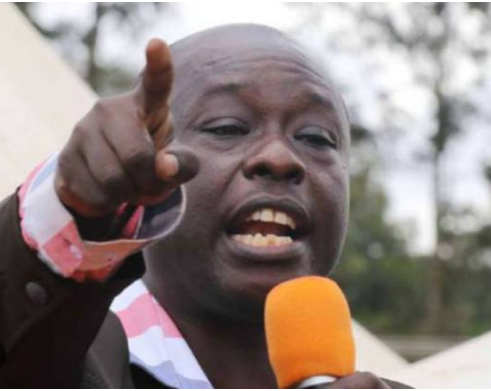Migrants committed 208,344 crimes in 2015, according to a confidential police report that was leaked to the German newspaper, Bild. This figure represents an 80% increase over 2014 and works out to around 570 crimes committed by migrants every day, or 23 crimes each hour, between January and December 2015.
The actual number of migrant crimes is far higher, however, because the report, produced by the Federal Criminal Police Office (Bundeskriminalamt, BKA), includes only crimes that have been solved (aufgeklärten Straftaten). According to Statista, the German statistics agency, on average only around half of all crimes committed in Germany in any given year are solved (Aufklärungsquote). This implies that the actual number of crimes committed by migrants in 2015 may exceed 400,000.
Moreover, the report — “Crime in the Context of Immigration” (Kriminalität im Kontext von Zuwanderung) — includes data from only 13 of Germany’s 16 federal states.
The report does not include crime data from North Rhine-Westphalia, the most populous state in Germany and also the state with the largest number of migrants. North Rhine-Westphalia’s biggest city is Cologne, where, on New Year’s Eve, hundreds of German women were sexually assaulted by migrants. It is not yet clear why those crimes were not included in the report.
The report also lacks crime data from Hamburg, the second-largest city in Germany, and Bremen, the second most populous city in Northern Germany.
Further, many crimes are simply not reported or are deliberately overlooked: political leaders across Germany have ordered police to turn a blind eye to crimes perpetrated by migrants, apparently to avoid fueling anti-immigration sentiments.
According to the report, most of the crimes were committed by migrants from: Syria (24%), Albania (17%), Kosovo (14%), Serbia (11%), Afghanistan (11%), Iraq (9%), Eritrea (4%), Macedonia (4%), Pakistan (4%) and Nigeria (2%).
Most of the migrant crimes involved theft (Diebstahl): 85,035 incidents in 2015, nearly twice as many as in 2014 (44,793). Those were followed by property and forgery crimes (Vermögens- und Fälschungsdelikte): 52,167 incidents in 2015.
In addition, in 2015, migrants were involved in 36,010 reported cases of assault, battery and robbery (Rohheitsdelikte: Körperverletzung, Raub, räuberische Erpressung), roughly twice as many as in 2014 (18,678). There were also, in 2015, 28,712 reported incidents of fare evasion on public transportation (Beförderungserschleichung).
There were 1,688 reported sexual assaults against women and children, including 458 rapes or acts of sexual coercion (Vergewaltigungen oder sexuelle Nötigungshandlungen).
According to the report, migrants were accused of 240 attempted murders (Totschlagsversuch), in 2015, compared to 127 in 2014. In two-thirds of the cases, the perpetrators and victims were of the same nationality. There were 28 actual murders: migrants killed 27 other migrants, as well as one German.
Finally, the report said that 266 individuals were suspected of being jihadists posing as migrants; 80 of these were determined not to be jihadists; 186 cases are still being investigated. The infiltration of jihadists into the country, according to the report, is “a growing trend.”
The report leaves far more questions than answers. It remains unclear, for example, how German police define the term “migrant” (Zuwanderer) when compiling crime statistics. Does this term refer only to those migrants who arrived in Germany in 2015, or to anyone with a migrant background?
If the report refers only to recently arrived migrants — Germany received just over one million migrants from Africa, Asia and the Middle East in 2015 — this would imply that at least 20% of the migrants who arrived in Germany in 2015 are criminals. But if the number of crimes committed by migrants is actually twice as high as the report states, then at least 40% of newly arrived migrants are criminals. Yet the report asserts: “The vast majority of asylum seekers are not involved in criminal activity.”
Also, for reasons that are not given, the report fails to include offenses committed by North Africans, long known to be responsible for an increase in crimes in cities and towns across Germany.

Police in Bremen, Germany are shown detaining four young North African criminals who have been terrorizing local shopkeepers. (Image source: ARD video screenshot) |
In Hamburg, police say they are helpless to confront a spike in crimes committed by young North African migrants. Hamburg is now home to more than 1,000 so-called unaccompanied minor migrants (minderjährige unbegleitete Flüchtlinge, MUFL), most of whom live on the streets and apparently engage in all manner of criminal acts.
A confidential report, leaked to Die Welt, reveals that Hamburg police have effectively capitulated to the migrant youths, who outnumber and overwhelm them. The document states:
“Even the smallest issue can quickly lead to aggressive offensive and defensive behavior. The youths come together in groups to stand up for each other and also to fight each other…
“When dealing with others, the youths are often irreverent and show a lack of respect for local values and norms. The youths congregate mainly in the downtown area, where they can be seen almost every day. During the daytime, they hang out mostly in the St. George district, but in the evenings they carry out their activities in the Binnenalster, Flora- and Sternschanzenpark and St. Pauli [all across central Hamburg]. They usually appear in groups; up to 30 youths have been observed on weekend nights in St. Pauli. The behavior of these highly delinquent youths towards police officers can be characterized as aggressive, disrespectful and condescending. They are signaling that they are indifferent to police measures…
“The youths quickly become conspicuous, mainly in the domains of pickpocketing or street robbery. They also break into homes and vehicles, but the crimes are often reported as trespassing or vandalism because the youths are just looking for a place to sleep. Shoplifting for obtaining food is commonplace. When they are arrested, they resist and assault [the police officers]. The youths have no respect for state institutions.”
The paper reports that German authorities are reluctant to deport the youths back to their countries of origin because they are minors. As a result, as more unaccompanied minors arrive in Hamburg each day, the crime problem not only persists, but continues to grow.
Meanwhile, in a bid to save the city’s tourism industry, Hamburg police have launched a crackdown on purse-snatchers. More than 20,000 purses — roughly 55 a day — are stolen in the city each year. According to Norman Großmann, the director of the federal police inspector’s office in Hamburg, 90% of the purses are stolen by males between the ages of 20 and 30 who come from North Africa or the Balkans.
In Stuttgart, police are fighting a losing battle against migrant gangs from North Africa who are dedicated to the fine art of pickpocketing.
In Dresden, migrants from Algeria, Morocco and Tunisia have effectively taken control over the iconic Wiener Platz, a large public square in front of the central train station. There they sell drugs and pickpocket passersby, usually with impunity. Police raids on the square have become a game of “whack-a-mole,” with a never-ending number of migrants replacing those who have been arrested.
German authorities have repeatedly been accused of underreporting the true scale of the crime problem in the country. For example, up to 90% of the sex crimes committed in Germany in 2014 do not appear in the official statistics, according to the head of the Association of Criminal Police (Bund Deutscher Kriminalbeamter, BDK), André Schulz. He said:
“For years the policy has been to leave the [German] population in the dark about the actual crime situation… The citizens are being played for fools. Rather than tell the truth, they [government officials] are evading responsibility and passing blame onto the citizens and the police.”
In an apparent effort to defuse escalating political tensions, Germany’s Federal Office for Migration and Refugees (Bundesamt für Migration und Flüchtlinge, BAMF) on February 16 said it was expecting only 500,000 new migrants to arrive in the country in 2016. In December 2015, however, BAMF director Frank-Jürgen Weise told Bild that “this figure [500,000] is only being used for ‘resource planning’ because at this time we cannot say how many people will come in 2016.”
On January 1, the International Monetary Fund (IMF) estimated that 1.3 million asylum seekers would enter the European Union annually during 2016 and 2017.
In a January 9 interview with Bild, Development Minister Gerd Müller warned that the biggest refugee movements to Europe are still to come. He said that only 10% of the migrants from the chaos in Iraq and Syria have reached Europe so far: “Eight to ten million migrants are still on the way.”
Adding to the uncertainty: On February 18, senior security officials from Austria, Croatia, Macedonia, Serbia and Slovenia — all countries along the so-called Balkan Route, which hundreds of thousands of migrants are using to enter the European Union — agreed to coordinate the joint transport of migrants from the Macedonia-Greece border all the way to Austria, from where they will be sent to Germany.
Soeren Kern is a Senior Fellow at the New York-based Gatestone Institute. He is also Senior Fellow for European Politics at the Madrid-based Grupo de Estudios Estratégicos / Strategic Studies Group. Follow him on Facebook and on Twitter. His first book, Global Fire, will be out in 2016.







































